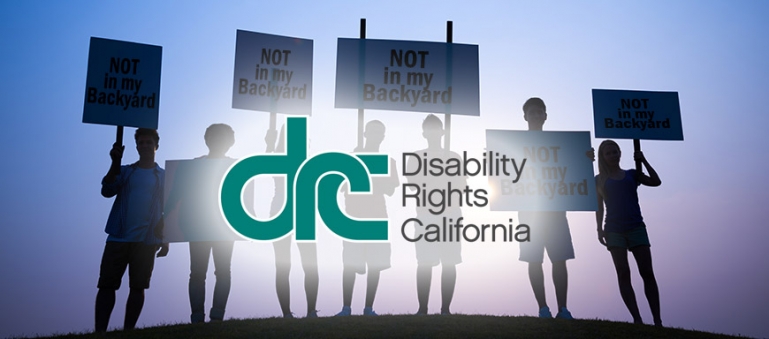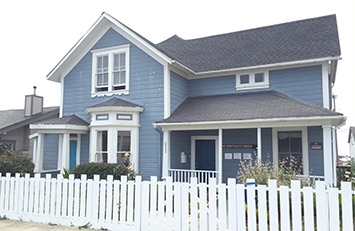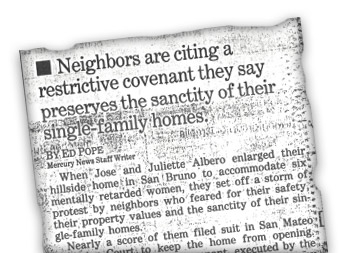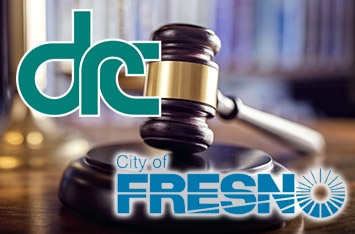DRC fights “Not in My Backyard” issues

DRC fights “Not in My Backyard” issues

Mendocino homeless shelter saved from possible closure
For more than three decades, Mendocino Coast Hospitality House (MCHC) has steadfastly followed the same mission, “To feed the hungry, shelter the homeless and to provide a personal path to self-sufficiency.” In 2017, that mission was threatened when the shelter faced “Not in My Backyard” opposition from a small but vocal group of neighbors. The shelter provides critical services to people in the City of Fort Bragg, including people with disabilities.
 Neighbors pressured the city to force MCHC to shut down the shelter, reduce its operations or move out of the central business district. The city planning department brought land use proceedings to impose restrictive conditions on the shelter’s special use permit. DRC attorney Pamela Cohen met with the city to negotiate mutually acceptable use permit conditions and represented the shelter at a planning commission hearing. After a three-hour hearing, the commission agreed to adopt the negotiated permit conditions. The city council denied a subsequent appeal filed by a group of neighbors. That opened the way for MCHC to continue its important work.
Neighbors pressured the city to force MCHC to shut down the shelter, reduce its operations or move out of the central business district. The city planning department brought land use proceedings to impose restrictive conditions on the shelter’s special use permit. DRC attorney Pamela Cohen met with the city to negotiate mutually acceptable use permit conditions and represented the shelter at a planning commission hearing. After a three-hour hearing, the commission agreed to adopt the negotiated permit conditions. The city council denied a subsequent appeal filed by a group of neighbors. That opened the way for MCHC to continue its important work.
The DRC Board of Directors honored MCHC for “fighting for itself and others” to save its services. “Because of DRC's and Pamela Cohen's efforts, not only did we prevail with our Hospitality House use permit, we gained expanded community support from the faith community and other non-profits on the coast, and most importantly, from the Fort Bragg City Council,” said Lynelle Johnson, MCHC board president. She accepted the award with Gary Johnson, advisory board member.”
Home for women with developmental disabilities allowed to open despite neighbors’ protests
Biased homeowners in San Mateo filed a lawsuit in 1993 to block the opening of a home for six women with disabilities in the neighborhood. DRC intervened in the case, filing on behalf of two residents who had spent the majority of their lives in a large state institution and were waiting for the opportunity to move into a family home in the community.
 The neighbors claimed the group home was an illegal “business” use, rather than residential, and should be prohibited. The court denied the neighbors’ preliminary injunction, siding with our clients. DRC claimed the Federal Fair Housing Act banned discrimination, including enforcing restrictions that promoted segregating and preventing people from making their own housing choices.
The neighbors claimed the group home was an illegal “business” use, rather than residential, and should be prohibited. The court denied the neighbors’ preliminary injunction, siding with our clients. DRC claimed the Federal Fair Housing Act banned discrimination, including enforcing restrictions that promoted segregating and preventing people from making their own housing choices.
“The clients with support from their families, were able to realize their dream of moving into the community,” recalls attorney Kim Swain who represented the intervenors.
City of Fresno settles suit over housing for people with mental health disabilities
In 1997, DRC (then known as Protection and Advocacy, Inc.) and other advocacy groups reached a major settlement with the City of Fresno over a housing project for people with mental health disabilities. The settlement stemmed from a 1996 lawsuit the groups filed against the city charging it discriminated against people with mental health disabilities when it denied funding to rehabilitate a low-income, supported housing project.
 The groups alleged the city and its employees made every attempt to undermine the proposed Cedar Heights project, including distributing alarming and false notices to neighbors. As a result, plaintiffs Family Alliance for the Mentally Ill and Affordable Homes, Inc. lost a 22-unit apartment building offered them at no cost by the Federal Deposit Insurance Corporation. The suit also pointed out the city lacked a single housing complex for people with disabilities. So people with disabilities were denied the opportunity to live independently.
The groups alleged the city and its employees made every attempt to undermine the proposed Cedar Heights project, including distributing alarming and false notices to neighbors. As a result, plaintiffs Family Alliance for the Mentally Ill and Affordable Homes, Inc. lost a 22-unit apartment building offered them at no cost by the Federal Deposit Insurance Corporation. The suit also pointed out the city lacked a single housing complex for people with disabilities. So people with disabilities were denied the opportunity to live independently.
Under the settlement, the City of Fresno agreed to provide $445,000 in grants to help pay for the renovation of the apartment building, train employees and officials to ensure they do not discriminate in the future, and conduct community outreach program to inform the public about services and benefits available to residents with disabilities.




